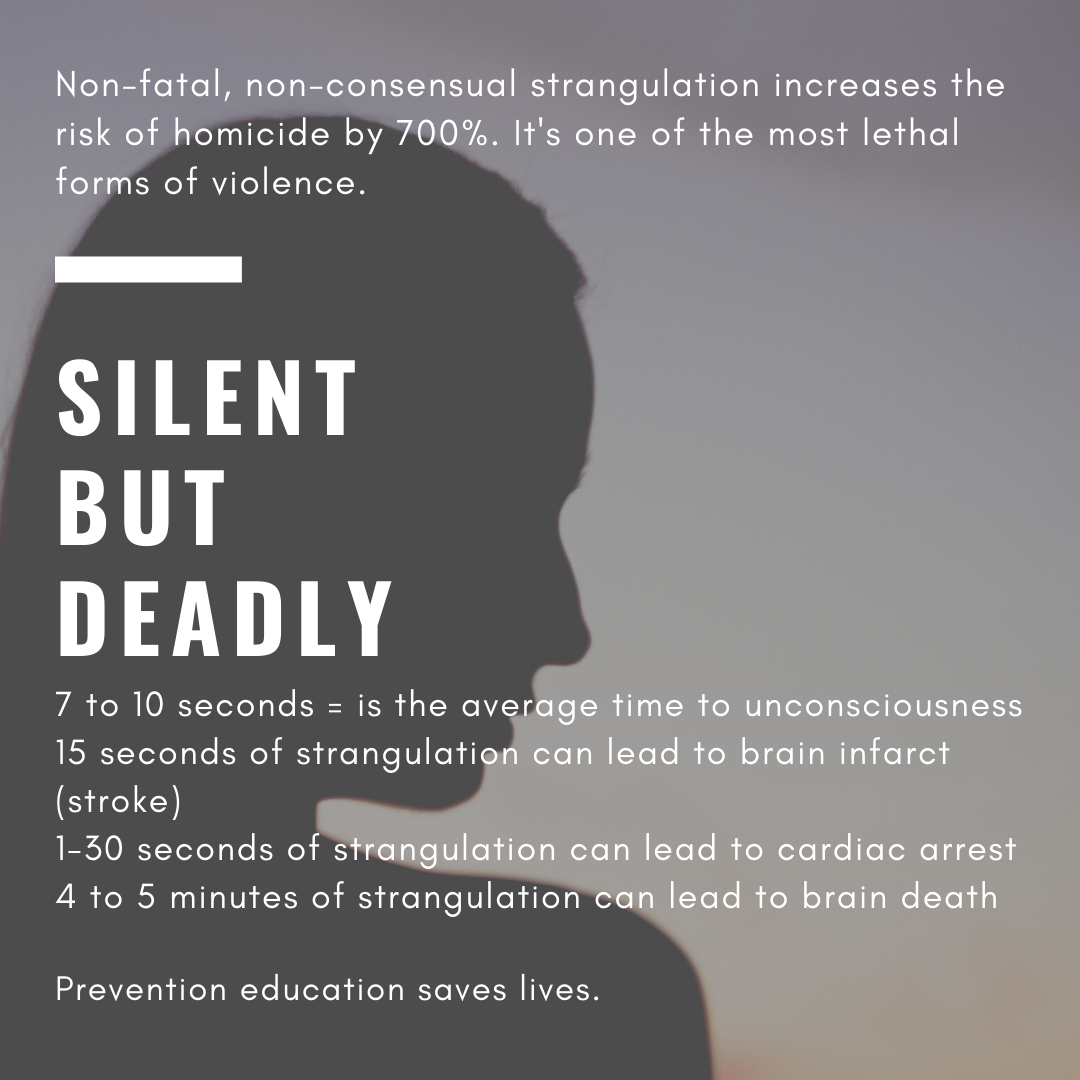We’ve created 31 Actions for Gender Justice to raise awareness, spark conversations and take action that transforms gender and power relations, and the structures, norms and values that underpin them. Every day for the month of March we will highlight an action that advances gender equity and justice for International Women’s Day (IWD).
Address sensitive topics
31 Actions for Gender Justice: Day 16
In average, every 2.6 days a woman is killed in Canada by a man, often by her current or former intimate partner. We don’t need to wait for studies to confirm these numbers. It takes only a few seconds to search the news online to find this information.
These deaths can be prevented by identifying harmful behaviours that increase the risk of intimate partner homicide.
Non-fatal, non-consensual strangulation is one of these harmful behaviours that increases the risk of homicide by 700%1. It’s a sensitive topic, but it needs to be talked about.
Strangulation is defined as “the obstruction of blood vessels and/or airflow in the neck resulting in asphyxia. “And just like you can’t be ‘a little bit pregnant’, victims can’t be ‘choked just a little bit’ by their attackers and not have serious, significant, permanent, or even fatal damage to their throats or brains.”[1]
According to the Training Institute for Strangulation Prevention in San Diego, California, 30% to almost 70% of women who experience domestic violence have been strangled.[2]
Often, this form of violence may not leave physical signs of injury, which makes it difficult for service providers to identify and for victims themselves to report and fathom that it could be fatal or a prelude to homicide. For this reason, it’s important for first responders to ask women in abusive environments if anyone has put pressure on their throat. Non-fatal strangulation may be silent but deadly.
- 7 to 10 seconds = is the average time to unconsciousness
- 15 seconds of strangulation can lead to brain infarct (stroke)
- 1-30 seconds of strangulation can lead to cardiac arrest
- 4 to 5 minutes of strangulation can lead to brain death
Sensitive topics are difficult to discuss for many people, but avoiding talking about it doesn’t make the issues go away. While community-based organizations like BWSS help survivors with risk assessment and safety planning, it is also key to include information about strangulation in prevention programs and public awareness campaigns. Prevention education saves lives.
[1] Coalition to Stop Violence Against Native Woman. Retrieved from https://www.csvanw.org/strangulation
2 ibid
3 Training Institute on Strangulation Prevention. Retrieved from https://www.strangulationtraininginstitute.com/impact-of-strangulation-crimes/
[1] ibid
[2] Training Institute on Strangulation Prevention. Retrieved from https://www.strangulationtraininginstitute.com/impact-of-strangulation-crimes/





